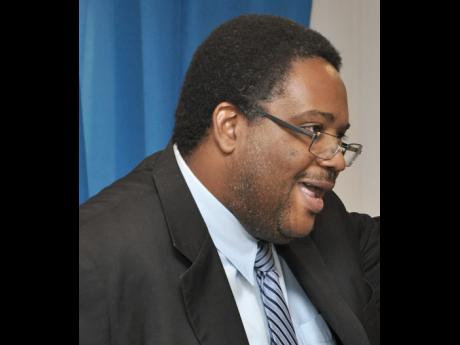UWI, IDB launch investment plan for regional climate change programme
With climate change impacts a clear danger to Caribbean islands, the University of the West Indies (UWI) and the Inter-American Development Bank (IDB) yesterday launched the investment plan for the region's track of the Pilot Programme for Climate Resilience (PPCR).
The programme, launched at the UWI Mona campus and which is to be implemented with IDB funding to the tune of US$10.4 million, should address the current dearth of reliable data to manage climate risk.
"The availability of accurate and standardised geo-referenced data and quality climate data has significant implications for understanding and assessing climate hazards and risks," reads the project document.
"Furthermore, the compilation of data and its appropriate modelling and simulation to produce required analyses to inform decision making is warranted," it added.
One component of the project, which is being rolled out with US$2.4 million in funding across six islands - Dominica, Grenada, Haiti, Jamaica, St Lucia, and St Vincent and the Grenadines - is, therefore, "improving geospatial data and management for adaptation planning, sea-level rise and storm surge impact analysis".
Another component, funded to the tune of US$2.3 million, entails "downscaling and expanded climate-projection models and high-resolution maps".
Other components include:
- Consolidating and expanding the regional climate network and global platform linkages (US$975,000)
- Applied adaptation initiatives (US$3.1 million)
- A communications strategy (US$108,700) that is to "raise the profile of the Caribbean regional Pilot Programme for Climate Resilience track and its activities among decision makers" regionally.
Various project components are to be co-implemented by a number of regional organisations, including the Caribbean Public Health Agency, the Caribbean Regional Fisheries Mechanism, and the Caribbean Agricultural Research and Development Institute. The work to be done will take account of a variety of sectors, notably, health, water, marine, and agriculture, in addition to policy areas.
Professor Michael Taylor, head of the Climate Studies Group Mona, which will work on a component of the programme, had high praise for it.
"A lot of our countries have a lot of individual projects, but there is need for some cementing," Taylor said.
According to the physicist, the regional nature of the programme, as evidenced by the entities involved, should prove beneficial in this way.
The Caribbean programme is one of two regional programmes and nine national programmes through which the PPCR is executed.

